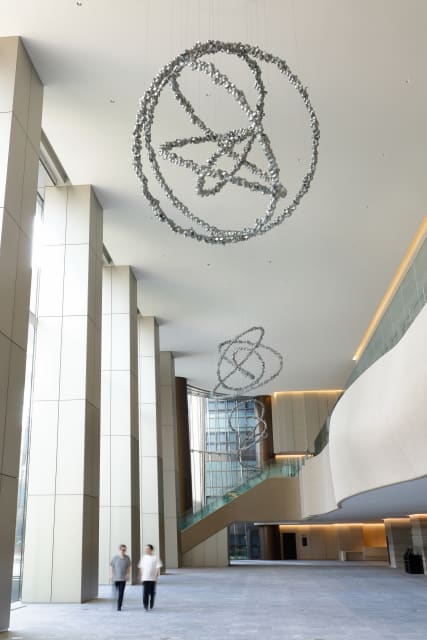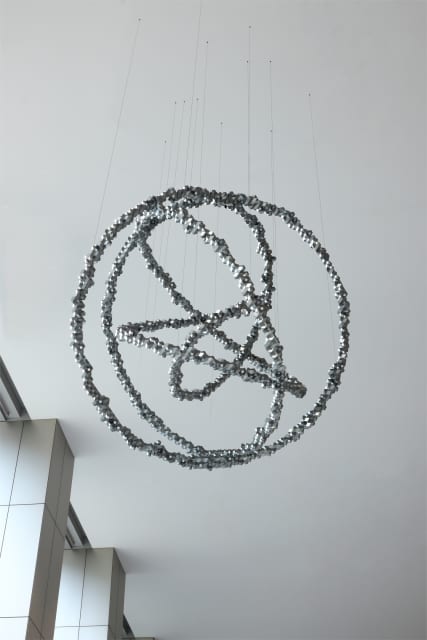Suspended above the heads of people entering and leaving the Azabudai Hills Mori JP Tower are four spiralling structures. The shapes appear to be the results of physical activities, centrifugal forces, or a free-flowing dance. They suggest slow movement along curving trajectories, as if in a time lapse. Slowness, deep time, and the hidden structures of quantum geometry were inspirations for the artwork.
From afar, the spirals appear to be simple lines. In fact they are three-dimensional forms made of repeating, geometric modules that conjure the growth of a crystal or a coral reef. Similarly, the lines may appear to be based upon improvised drawings, but they are actually mathematically derived, inspired by satellite curves, the trajectories of a point moving along the surface of a rotating sphere.
The polyhedral space-filling module, known as a bisymmetric hendecahedron, has eleven faces comprising rhombi, kites, and triangles. It can be combined and stacked to create larger structures, and the odd number of faces gives the results an unexpected, meandering quality. The geometry derives from years of research conducted at Studio Olafur Eliasson into space-filling modules.
In line with the studio’s sustainability efforts, Studio Olafur Eliasson employed an experimental technique for casting recycling metals to construct this artwork.







